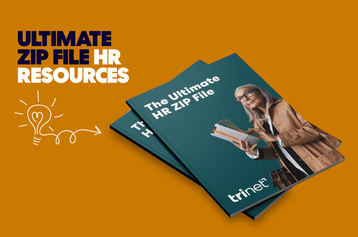
Private employers with federal contracts are now prohibited from requesting criminal history information from job applicants at the initial application stage. Instead, they must wait until they make a job offer. As of December 20, 2021, private employers with federal government contracts cannot request criminal history information from candidates for jobs within the scope of the federal contract until after a conditional offer has been made. A “conditional offer” means an offer that is contingent upon the result of a criminal history inquiry. The National Employment Law Project (NELP) has estimated that about 700,000 job applicants with criminal records "will now have a fairer chance at federal agency and contractor employment." The new requirement comes from the “Fair Chance to Compete for Jobs Act” (FCA). The FCA is part of the defense spending bill signed by former President Donald Trump in December 2019. The FCA does not prevent employers from seeking arrest and conviction history information in making a hiring decision. The federal law delays the inquiry until after the employer makes an offer.
Private employers with federal government contracts will not be allowed to request criminal history information from candidates for jobs within the scope of the federal contract until after a conditional offer has been made.
FCA supersedes OPM rule
Most federal agencies are already operating under limitations in seeking criminal history. Under rules put into place in 2017 by the United States Office of Personnel Management (OPM), the feds can’t ask for a job applicant’s criminal history until after they extend a conditional job offer. The FCA supersedes the OPM regulation. The FCA includes measures, such as penalties, not found in the OPM rules although the measures are similar.
FCA coverage
The FCA applies to all executive agencies, including cabinet agencies and the U.S. Postal Service. It also applies to civilian agency and defense contracts made with private employers. It does not apply to the armed forces or the legislative branch.
Exceptions
For jobs where consideration of criminal history is necessary before making a job offer, the FCA does not apply. The law also does not apply to:
- Law enforcement or national security positions
- Jobs involving access to classified information
The federal oversight agencies can designate additional exempted positions as long as employers meet certain conditions.
Complaint process
The FCA requires the federal oversight agencies to set up and publish a complaint and appeal procedure for job applicants alleging violations of the federal law.
Penalties
There is a range of penalties for violating the Fair Chance Act:
- Federal agency employees who violate the law face suspension for a first offense. They can face suspensions and fines for later violations.
- Contractors face penalties ranging from a written warning for a first offense to suspension of payments.
Ban-the-Box history
Callbacks and job offers are reduced by close to half for applicants with a criminal record.
Employee background screening is a common part of the hiring process. “Ban the Box” or “fair chance hiring” is a nationwide movement. It’s based on the premise that job seekers with a criminal history are hampered in finding employment by having to “check the box” on the employment application that asks if the applicant has ever been arrested or convicted of a crime. About 1 in 3 adults in the United States has an arrest or conviction record that can show up on a routine background check for employment, according to NELP. Callbacks and job offers are reduced by close to half for applicants with a criminal record. Nearly 60% of individuals with criminal records remain unemployed one year after release, according to research. Hawaii was the first state to pass a “ban-the-box” law in 1998. Currently, 37 states and over 150 cities and counties have enacted such legislation, according to NELP. Most of the laws, however, regulate public sector employment. Only 14 states mandated that private employers must scrap criminal history questions on job applications. There is no federal “ban-the-box” law for private businesses.
Ban-the-Box supporters, detractors
Proponents say forbidding inquiries into criminal history during the early part of the hiring process helps jobseekers with criminal records compete for employment. Opponents argue that prohibitions on criminal history benefit neither job applicants nor employers. In rejecting Maryland’s “Ban’s the Box” bill, Republican Governor Larry Hogan wrote in a veto letter that delaying businesses from inquiring about an applicant’s criminal history until the first in-person interview “would result in costly and time-consuming human resources work that ultimately goes nowhere.” The Maryland legislature ultimately overrode Hogan’s veto of the “Ban the Box” measure. Industry groups such as the National Retail Federation and the National Federation for Independent Business (NFIB) have criticized the campaign. NFIB argued in a 2017 blog post that “ban-the-box” measures place employers in a bind. A business can be subject to a lawsuit if it rescinds an offer because of an applicant’s criminal record while it can also face liability for hiring an employee with a record, NFIB said. Some employers argue that criminal background checks help to provide workplace safety. Some of the nation’s largest employers, including Facebook, Google, Home Depot, Starbucks, Target, and Walmart “ban the box” on their job applications.
EEOC recommended approach
Apart from OPM’s longtime rule on criminal history inquiries, another federal agency, the U. S. Equal Employment Opportunity Commission (EEOC) has also voiced an opinion. The EEOC suggests that employers reject a “blanket policy” that bars all applicants with criminal histories. Employers should follow an individualized approach to background checks. The federal agency says such an approach allows employers to determine whether a criminal record is relevant for the job. The EEOC warns that federal law can view the use of an individual’s criminal history as employment discrimination. The landscape on “ban-the-box” inquiries is undergoing rapid change. Local, state and federal law on the use of arrest and conviction history is changing. Employers should check the laws in the jurisdictions in which they do business and adopt policies that reflect the requirements.
This communication is for informational purposes only; it is not legal, tax or accounting advice; and is not an offer to sell, buy or procure insurance.
This post may contain hyperlinks to websites operated by parties other than TriNet. Such hyperlinks are provided for reference only. TriNet does not control such web sites and is not responsible for their content. Inclusion of such hyperlinks on TriNet.com does not necessarily imply any endorsement of the material on such websites or association with their operators.






